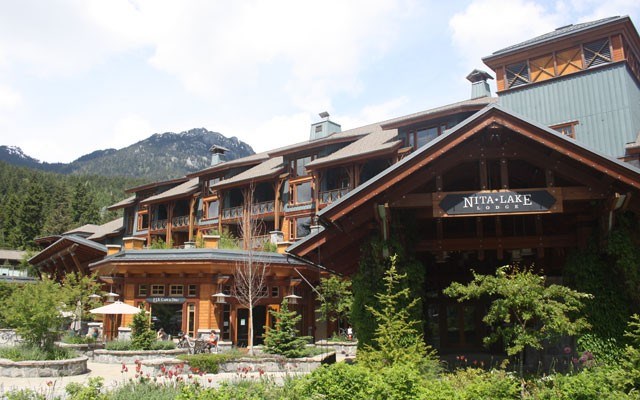Frustration with the ups and downs of the hotel-condo real estate market is coming to a head in a dispute between the manager and some owners at a Whistler Phase II condominium property.
The dispute involves the owners of nine units of the 77-unit Nita Lake Lodge and dates back to 2011, when the property sank into insolvency.
At that time, majority owner Michael Scholz stepped in as manager of the hotel.
Soon after assuming management, Scholz decided that the original Rental Pool Management Agreement (RPMA), which promised owners 55 per cent of hotel revenue while keeping 45 per cent to run the hotel, was unsustainable.
"It only worked on the basis that you had the revenue and cash flow, especially a unique boutique hotel like Nita Lake, that only had 77 rooms," Scholz said. "That model never worked."
Under the Resort Municipality of Whistler's Phase II covenant — the rules governing usage of property — Scholz terminated the original RPMA and drafted a new deal that offered owners 25 per cent of revenue, rising to 50 per cent once the hotel's bills were paid.
Eleven of the minority owners agreed to the new deal, while nine refused.
Those who declined to sign on to Scholz's new RPMA would have preferred that the Nita Lake Lodge go through the process of bankruptcy, and that an open, transparent process was pursued for procuring new management.
Since the new RPMA was put in place, business has grown and the hotel is now turning a small profit.
But since the original deal was terminated, Scholz and the holdouts have been engaged in a back-and-forth battle of wills documented on a website set up by the minority owners — www.beware-at-whistler.com.
"This was never about making money. This was about being part of Whistler for the next 20 years," explained Jon Sobel, one of the owners behind the website.
"It feels as though a professional investor came in at a difficult time and has been acting very aggressively to exploit the situation for his benefit, and to everyone else's detriment."
Whistler's Phase II covenant states that units signed onto it — about 5,000 in the RMOW — must be placed into a rental pool.
Owner usage is then restricted to 28 days in the winter and 28 days in the summer, with owners receiving a share of the revenue earned through renting.
The group alleges that Scholz's termination of the original RPMA was illegal and that he neglected to pay them for the use of their units over a period of 16 months.
Under the covenant, owners can't use or rent their units without a RPMA.
The group is now seeking release from the RMOW covenant and the ability to rent out their units independently.
Doing so, Scholz, said, would set an undesirable precedent and cause the entire Phase II model to "deteriorate."
"It would open up Pandora's Box for the resort if they did that," he said. "You can't turn back the clock. They bought the units with the covenant in place."
But the owners feel Scholz isn't acting in good faith, instead using the covenant as a shield to protect himself.
Appeals made to the RMOW by the group have been ineffective, said Lawrence Kosick, another of the owners.
"What we're really fighting for is for Whistler to step in and say, 'You cannot abuse our covenant and do this to owners,'" Kosick said. "We understand that there's economic ups and downs, but we should be able to use our property, to access our property and to all agree on the best management company for the hotel, for the project."
But from the perspective of the RMOW, the dispute is between two private parties, and not one the municipality has a role in.
"We simply can't get involved in that dispute by lifting the restrictive covenant as the minority owners have asked us to do," said Mayor Nancy Wilhelm-Morden.
There is concern that lifting the covenant — in place to ensure "professional and appropriate customer service" — may set a precedent with other Phase II properties.
While not every Phase II property adheres to a single-booking system, those that don't have faced challenges, Wilhelm-Morden said.
With the RMOW unwilling to intervene, the dispute will likely be resolved in front of a judge.
On May 26, Scholz filed a notice of civil claim in the Supreme Court of B.C., claiming breach of trust against the nine owners and seeking $395,000 in damages, loss of income and reparation of legal fees incurred throughout the dispute.
Meanwhile, the owners reluctantly continue their campaign as a last-ditch effort to lift the covenant on their properties.
"We don't like being part of he said, she said. Everybody has better things to do than to be seen to be bickering," Sobel said. "We will undoubtedly be portrayed as greedy, disgruntled people who have their hand out and are just trying to drive a hard bargain. This has been distressing on so many levels."




